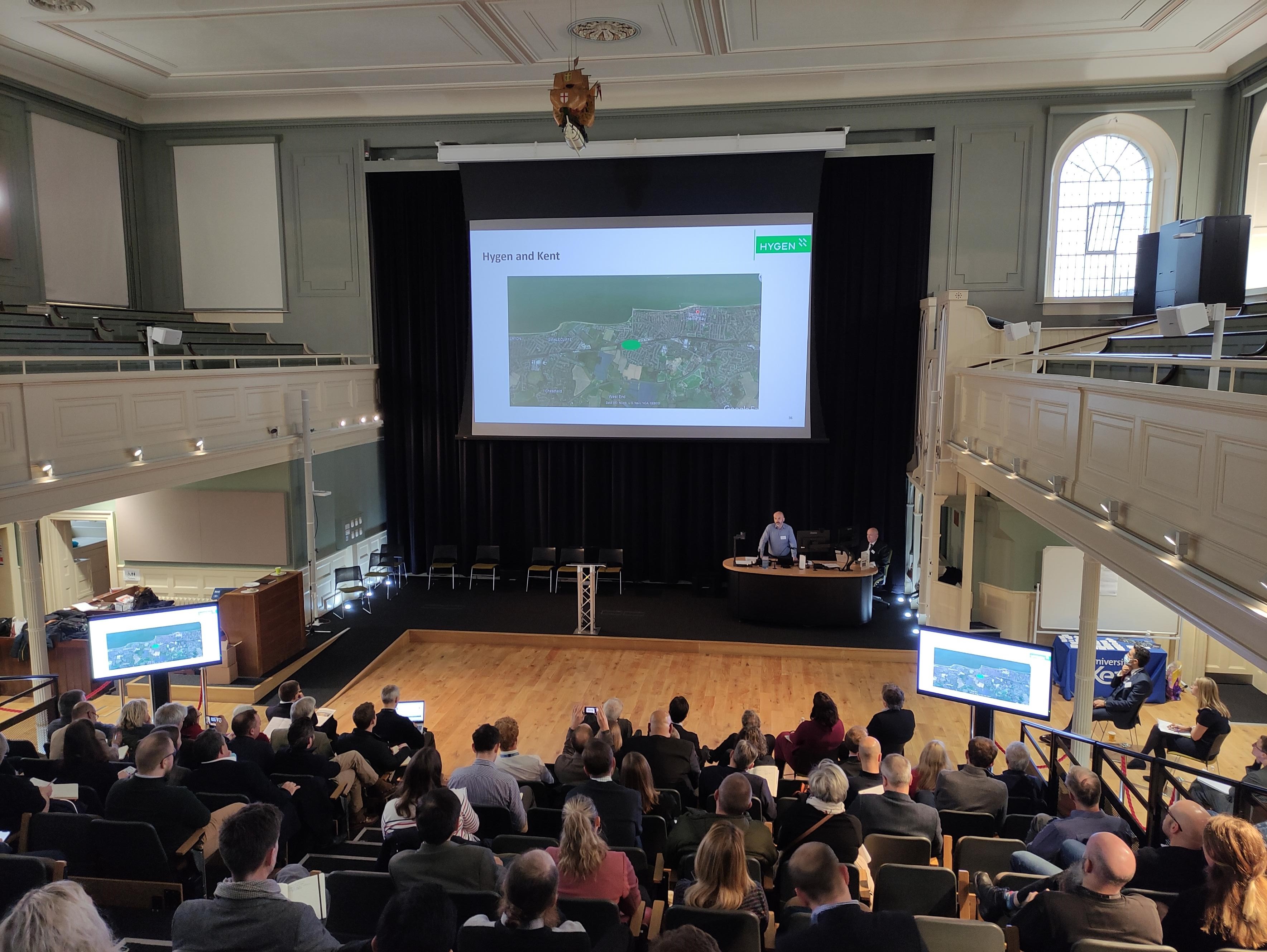Representatives of businesses, policymakers and academic experts from the Universities at Medway gathered to discuss the future of this new and potentially revolutionary form of energy at the recent Kent and Medway Hydrogen Summit in Chatham.
Academics from the University of Kent, Canterbury Christ Church University and the University of Greenwich, presented their groundbreaking research which is directly answering the technical, logistical and commercial challenges presented by the development and delivery of hydrogen as a viable source of energy.
With an opening address by Councillor Howard Doe, Deputy Leader of Medway Council, the Summit was also an opportunity for the leading figures and organisations at the forefront of clean energy research to discuss and network for future collaboration.
Dr Robert Barker and Professor Thanos Papadopoulos presented for the University of Kent, highlighting their work in the environmental, social and economic challenges emerging from the rapid deployment of this innovative source of energy.
Dr Barker emphasised the key role that universities can play in innovative research and in answering the challenges of fulfilling the UK’s ambitions to lead a hydrogen future. He said: ‘It’s clear from today that there is a real opportunity for the region and the UK more widely to become leaders in the Hydrogen economy, but this will only be possible by leveraging university innovation to support industrial pioneers. Expertise in universities hold the keys to unlock some of today’s challenges that face hydrogen research to ensure mainstream adoption of this exciting future energy source. We also have a key role to play in the training and up-skilling of our next generation of scientists and engineers to support the new jobs that will emerge as the hydrogen economy builds momentum.’
Academics from the University of Greenwich and Canterbury Christ Church University highlighted their research, the emerging collaborative culture around hydrogen and the skills and training needed to bring about the step-change in this rapidly growing sector.
Business representatives showcased a number of current projects at the Summit, to highlight hydrogen’s application to marine and air travel, land-based transport including cars and trains, portable power, and home use.
Challenges with the transportation of hydrogen energy mean that regional production and delivery is critical. Delegates heard that the South East – and the Thames Estuary in particular – is a prime location for the upscaling of hydrogen production; with significant offshore wind and onshore solar generation capacity, the UK’s largest cluster of ports and significant logistics operations with more than 18 million people within a radius of 70 miles.
Simon Barnes, Funding & Partnership Development Manager at the University of Kent and one of the convenors of the event, said: ‘This event represents a really important moment in the region’s adoption of hydrogen as an innovative and sustainable source of energy for the future.
‘As we repeatedly heard at the Summit, collaboration is critical to the future of these developments. We also heard that place and regionality are key too. It was heartening therefore that the event brought together businesses, universities, policymakers and local authorities to discuss how together we can bring about transformational change in our region and maximise the potential of the hydrogen revolution.”
Councillor Howard Doe, Deputy Leader of Medway Council, who is leading on Medway’s Climate Change agenda, said: ‘I was pleased to open the Kent and Medway Hydrogen Summit in Chatham. We all need to work together in the fight against climate change and the Summit brought organisations from a number of sectors together to discuss the latest developments in clean energy technologies. We are working hard to achieve net zero carbon across Medway by 2050 and we will continue working with partner agencies, the local community and the universities in order to do this.’

